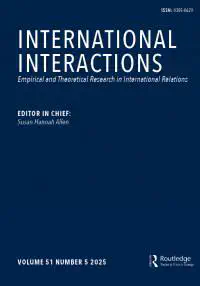Colonial Legacy and Foreign Aid: Decomposing the Colonial Bias

Abstract
It is well-known that donors give considerably more foreign aid to former colonies than to countries lacking past colonial ties. Unfortunately, we know relatively little about why this is the case. For one, there is almost never a theoretical justification for the inclusion of colonial history in statistical models. For the other, the only explicitly made rationale by Bueno de Mesquita and Smith (2009) actually predicts an interpretational problem: colonial history not only increases a former colony’s saliency to the donor, but also has left deep marks on recipients’ social and political institutions today. Both aspects shape how much aid a donor transfers to the recipient. This leaves ambiguous the meaning of the routinely found positive, sizable, and significant coefficient of colonial history on aid flows. We solve the inferential quandary by using a decomposition approach from labor econometrics. Our results show that about 75– 100% of the colony effect on foreign aid stems from the greater saliency that donors give to policy concessions from former colonies.